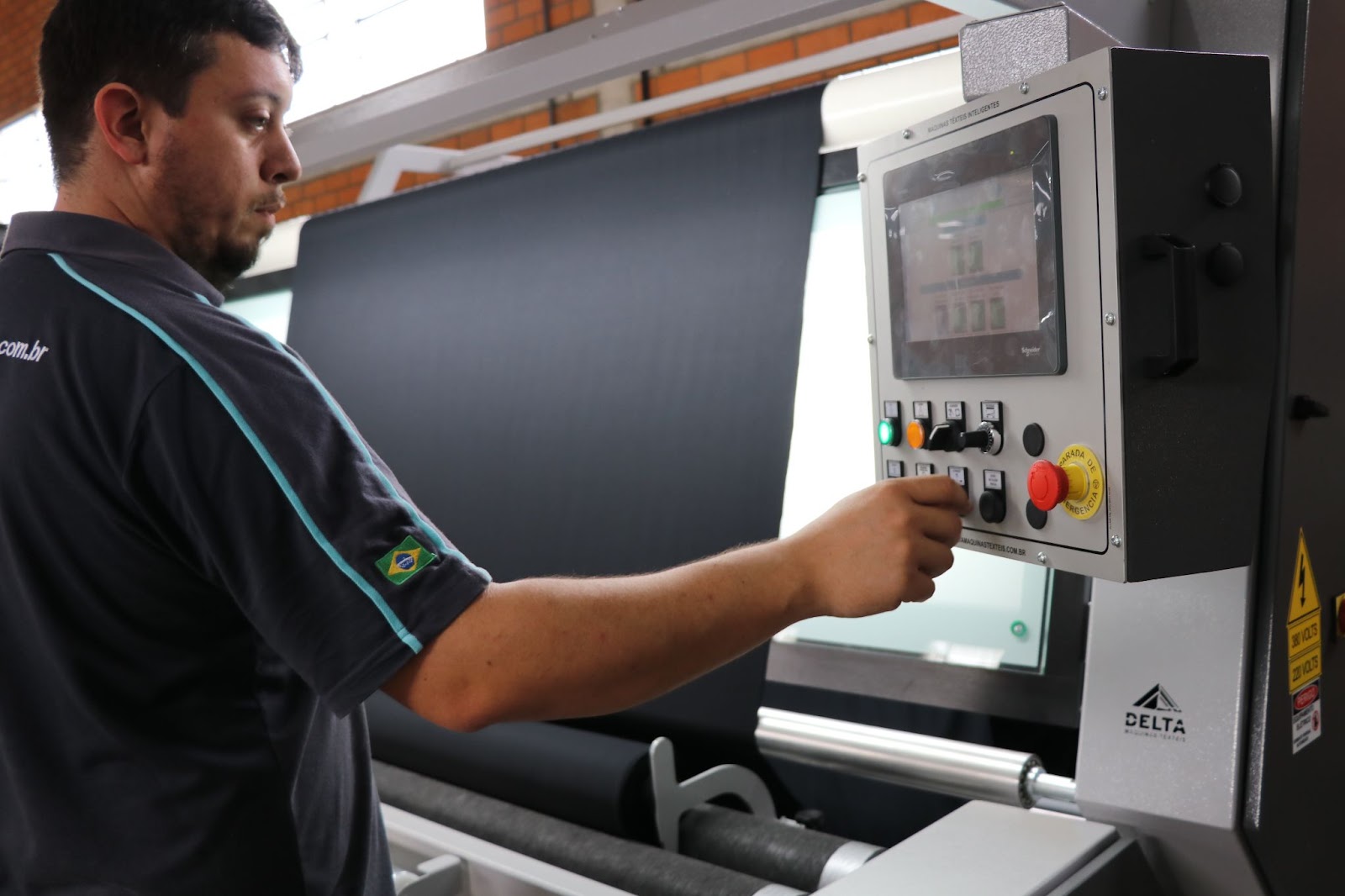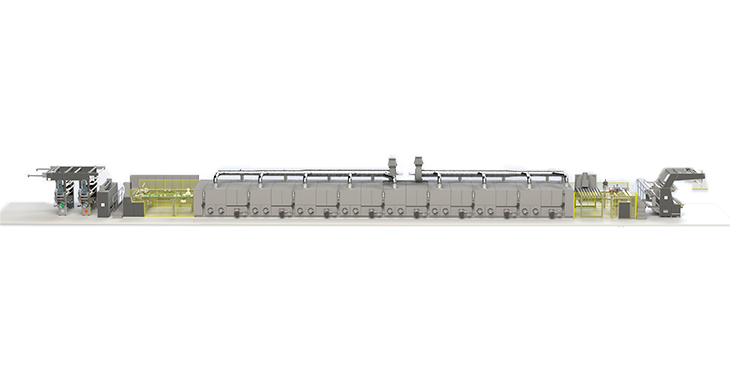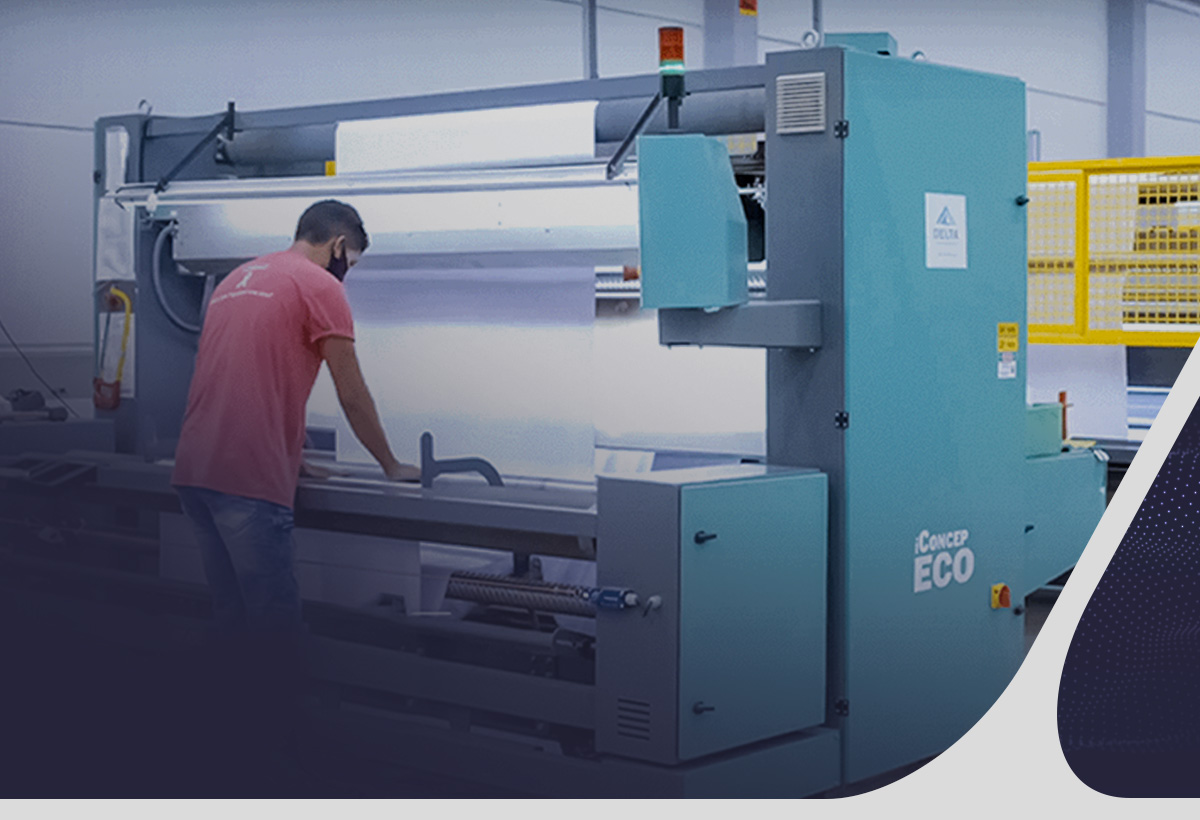Investment in technology in the textile finishing phase is more than necessary. It is indispensable for the industry that wants to promote a complete balance between quality and profitability!
There are countless reasons for purchasing this tool, but in this text, we list 5 main ones. We also reinforce its impacts on efficiency and assertiveness in the finishing phase. Check it out below!
How important is technology in the textile finishing phase?
The textile finishing phase is responsible for perfecting all the details of the final product. Fabric preparations are carried out here, improving the dimensional structure and appearance of the fabric.
Therefore, quality assurance at this stage generates fundamental gains for the health of your industry. However, to achieve this, it is necessary to optimize this process, ensuring financial and productivity gains.
And this is exactly why investment in automation and updating, through textile technology, becomes fundamental for the finishing phase.
That is, only modern machinery is capable of contributing to the efficiency of production processes. After all, equipment that is out of date, or that was not designed for use in the textile industry, is a dangerous source of failure. Which results in rework, expenses and waste.
This is because older machines require large amounts of maintenance, increasing downtime and downtime. Likewise, they also tend to be limited, reducing the industry’s productive capacity.
Therefore, to promote the perfect balance between productivity, quality and cost reduction, modern, intelligent and high-tech machines must be available.
For the textile finishing phase, they contribute to the evolution and updating of processes, making the industry increasingly less susceptible to errors and failures in the production line.
In other words, there is no way to have quality control in processing, for example, not to mention the need for modern and efficient machines.
In summary, the application of technologies in the textile finishing phase directly impacts the profitability and efficiency of production. With them there will be improvements in products, quality in deliveries and excellence in the stage.
To better understand the impact of textile technology on finishing, check out the 5 main reasons to guarantee them below.
1 Greater automation and standardization of production

The textile automation is responsible for collaborating with human activities, increasing industry productivity. In this way, tasks that were manual in the finishing phase are now optimized with the help of technological machines.
This also makes it possible to obtain greater quality control and security. That is, by avoiding errors and failures, there will be greater savings and the elimination of rework and waste.
Machines with textile technology can (and should) be used together with intelligent programs and software capable of making the activity more efficient and faster. This also helps with production processes and the performance of professionals.
And, with this, your industry’s processes and routines will be standardized, in order to meet safety, effectiveness and quality standards. It will also have greater modularization and organization.
Therefore, you will have greater control and stability of the processes, reducing the variability of the final product.
2 Ensuring data-driven management
Technology in the textile finishing phase also contributes to building data-driven management. This is because modern machines are already capable of generating important information about their activities and useful life.
In other words, this equipment, together with an ERP (Enterprise Resource Planning) system, guarantees complete data analysis by being recorded and centralized in a single location.
Thus, reports are developed that help in the study of each activity, eliminating the possibility of different bottlenecks. In other words, with this, you will be able to evaluate fluctuations in quality, costs, demand control and much more.
In this way, textile technology offers greater control of data, contributing to more assertive and efficient management. After all, it is essential that decision-making is based on real information, following the strategy and seeking operational efficiency.
3 Ease of meeting demands
The use of technologies in the finishing phase is not only essential to guarantee the quality of the final product, but also to ensure that current consumer demands are met. Considering that every year there are changes in consumption and the market.
Currently, what consumers want most is a product that is increasingly personalized and suited to their needs. In this way, technology helps you meet your expectations and requirements, without affecting the final quality of the product in any way.
For example, with technology, automation and optimization of steps, there is a greater possibility of mass personalization, contributing to meeting consumer expectations.
Furthermore, the adoption of these tools helps to offer products that are more consistent with recent industry trends.
4 High productivity and cost reduction
Due to the optimization of time, generated by modern machines, production guarantees greater agility and productivity. Added to this is the elimination of errors and rework, which also promotes speed and assertiveness in activities.
And of course! By eliminating defects, material waste, failures, labor requirements and rework, there will be greater profitability and profitability for the industry.
Therefore, investing in modernization, at first, may seem costly. However, the future financial return is much greater.
Thinking about everything mentioned, we developed an eBook that reinforces the role of textile technology in optimizing the finishing phase and its entire production. To understand more about the subject, just click the button below and download it for free.
5 More prominence and marketing advantage
Finally, with more than 22,500 formal production units across the country, according to Abit, technology contributes to market prominence.
With the great demands of customers and the high competitiveness of the market, to stand out from the competition it is essential to guarantee high productivity and quality.
In order to achieve customer satisfaction and, increasingly, authority in the sector in the market. This way, it will be possible to ensure healthy, scalable and predictable development.
Discover Delta Máquinas Têxteis solutions for the textile finishing phase

Here at Delta Máquinas Têxteis we offer modern solutions focused on innovation and industry 4.0.
We have been providing intelligent machines, automation and textile process consultancy for 15 years. Our goal is to help the evolution of our client and the entire National and International Textile Industry.
Therefore, we have an extensive portfolio for different stages of your production. For the finishing phase, which is the topic of this text, we can highlight some of them.
The first is the Textile Stenter (RDS1000). It is the most important solution used by companies in the fabric preparation and finishing process. Its difference lies in the technology applied to the product.
It performs, in a single piece of equipment, the impregnation of chemical products, structure alignment, drying and/or heat fixation of the fabrics.
The automation of these steps provides touch, weight and dimensional stability. This guarantees high quality products, with agility and safety in production. All of this, combined with data integration into the ERP.
The DWM555 Sample Washer – iConcept Smart is a Delta innovation to the shrink testing process. The solution speeds up the response in the laboratory and, through washing, centrifugation and drying cycles, determines the percentage of shrinkage.
All of this facilitates monitoring of the process and generates greater quality in the final product. It also results in savings in raw materials, water, electricity and time, promoting return on investment.
And the EHR200 Hydro Sprinkler Station – iConcept Eco is the solution that applies products for different finishes. With the help of adjusting the natural regain of the fiber, it recovers the residual moisture of knits and fabrics lost during the process.
This difference improves the fit, sewability and final touch of the garment, generating gains in quality, productivity and profitability.
Next step
We have seen throughout the text that investment in technology generates numerous benefits for the textile finishing phase and, consequently, for the industry. Ensuring intelligent solutions is essential to promoting the health of your business.
Therefore, click here to download our catalog now and learn more about our solutions for this phase. Start thinking about investing in textile technology now!


